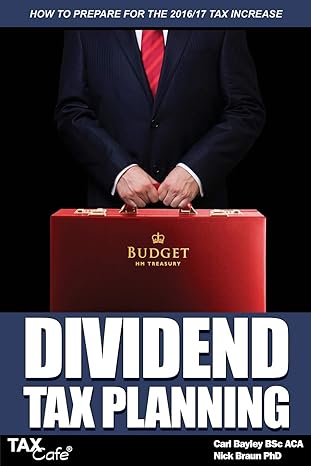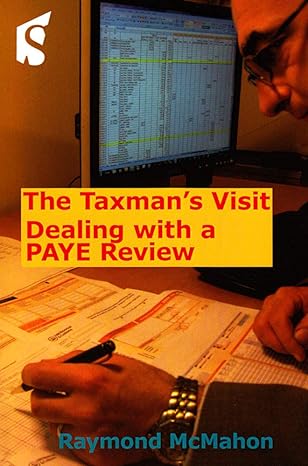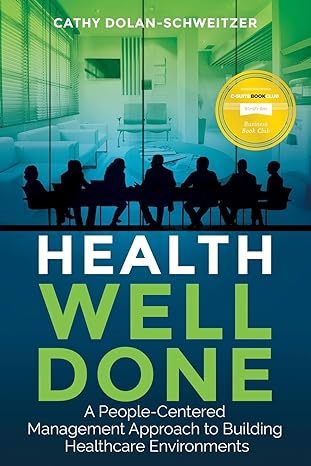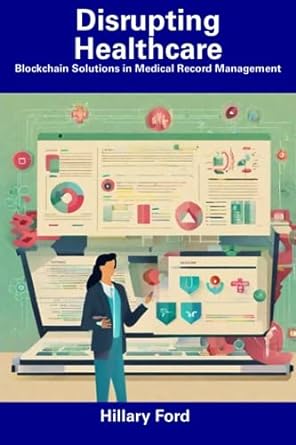Go back


Dividend Tax Planning How To Prepare For The 2016/17 Tax Increase(2017 Edition)
Authors:
Carl Bayley, Nick Braun

Cover Type:Hardcover
Condition:Used
In Stock
Include with your book
Free shipping: April 04, 2024Popular items with books
Access to 3 Million+ solutions
Free ✝
Ask 10 Questions from expert
200,000+ Expert answers
✝ 7 days-trial
Total Price:
$0
List Price: $26.30
Savings: $26.3(100%)
Book details
ISBN: 1907302999, 978-1907302992
Book publisher: Taxcafe UK Ltd
Get your hands on the best-selling book Dividend Tax Planning How To Prepare For The 2016/17 Tax Increase 2017 Edition for free. Feed your curiosity and let your imagination soar with the best stories coming out to you without hefty price tags. Browse SolutionInn to discover a treasure trove of fiction and non-fiction books where every page leads the reader to an undiscovered world. Start your literary adventure right away and also enjoy free shipping of these complimentary books to your door.
Dividend Tax Planning How To Prepare For The 2016/17 Tax Increase 2017 Edition Summary: In the July 2015 Budget it was announced that the tax treatment of dividends will be completely changed at the start of the 2016/17 tax year on 6 April 2016. Dividend tax credits will be abolished, so it will no longer be necessary to gross up your dividends to calculate your tax. All tax calculations will work with the amount of dividend actually paid and will therefore be a lot simpler. That's the good news. The bad news is that new tax rates for dividends have been announced that are 7.5% higher than the existing rates. The first £5,000 of dividend income will, however, be tax free thanks to a new "dividend allowance". This guide explains how dividends will be taxed next year and what action you should take this year to reduce your tax. In particular, we examine whether company owners should pay themselves a bigger dividend this year before the tax rates go up and how much tax you are likely to save.
Customers also bought these books
Frequently Bought Together
Top Reviews for Books
Gazi Refai
( 5 )
"Delivery was considerably fast, and the book I received was in a good condition."










